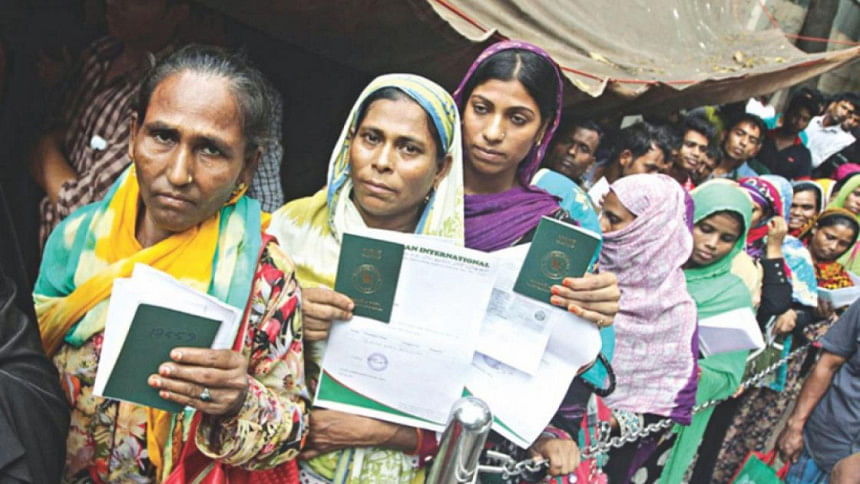Rehabilitate female returnee migrants

During the Covid-19 pandemic, the unfair treatment of Bangladeshi migrant workers in host countries was frequently in the spotlight—whether it was the detention of unregistered workers in unsafe facilities, their lack of access to proper healthcare and nutrition after forced redundancies, or their mass deportation back to Bangladesh, all the while facing wage theft and great uncertainty over future prospects of employment.
According to data from the Brac Migration Programme, female migrant workers have also been greatly affected by this uncertainty, as almost 50,000 female migrant workers were forced to return home from 21 countries during the pandemic. What is even more concerning is that despite the fact that global air communications largely remained suspended during the pandemic, 77 corpses of female migrant workers were returned to their families in Bangladesh.
Time and again, we have reported on the horrific abuse that Bangladeshi female migrant workers have faced in host countries, many of whom are also victims of trafficking. It is rare for these workers to receive justice in host countries for the crimes committed against them, although the recent sentencing of a Saudi national by a criminal court in Saudi Arabia for the torture and murder of Bangladeshi migrant worker Abiron Begum is a step in the right direction. However, we are yet to see a coordinated and sincere effort from our own authorities in dealing with traffickers, as well as the syndicate of recruiting agencies and public officials who work together to place the lives of our female workers at risk and profit from it.
The government needs to urgently bring recruiting agencies under a monitoring mechanism and ensure their accountability, while also putting pressure on host countries to ensure safer working conditions for our women. At the same time, NGOs and the government need to work together for the rehabilitation of the female migrant workers who have returned during the pandemic. Although the government has put forward a Tk 200 crore special loan package for the rehabilitation of returnee migrants, reports suggest that only about five percent of these loans have been disbursed so far. Have female returnees been able to access these loans at all? The authorities involved must look into this.
This International Women's Day, we remind the government that our female migrant workers have also greatly contributed to this country's journey to "developing country" status through their hard-earned remittances. We must ensure that they are treated with the dignity and respect they deserve.

 For all latest news, follow The Daily Star's Google News channel.
For all latest news, follow The Daily Star's Google News channel. 



Comments